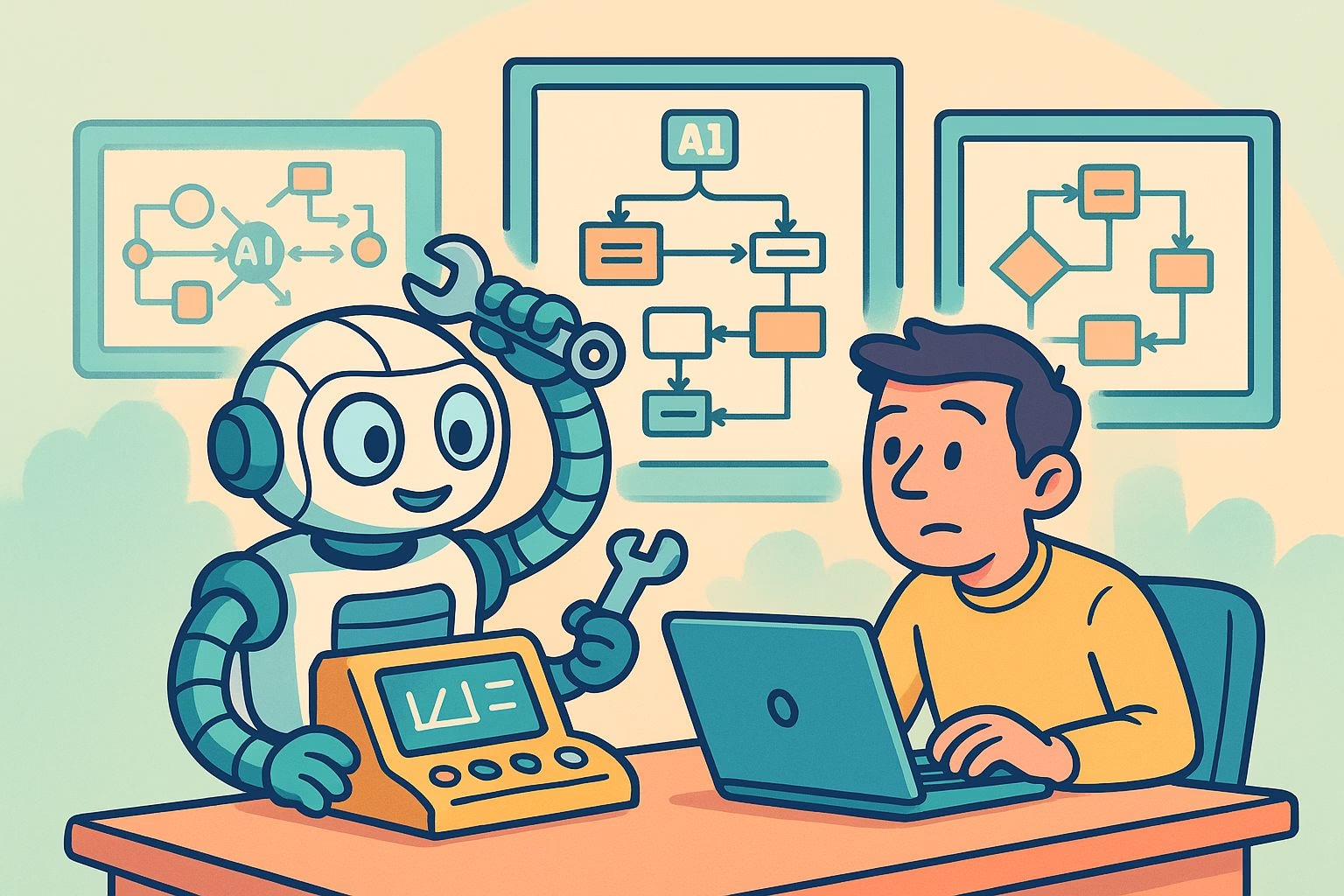DeepSeek’s self improving AI agent could shake things up again
DeepSeek is working on a new AI agent with promises that sound both ambitious and familiar.
According to Yahoo Finance, the system will execute multi-step tasks autonomously and even “self-improve” based on its prior actions.
On paper, this is the holy grail of agentic AI, but I can’t help feeling cautious after watching this same storyline play out again and again with overhyped launches.
Every lab in the space has dangled the dream of fully autonomous AI, yet when you actually use these agents, they feel like assistants with slightly longer leashes, not independent problem solvers.
DeepSeek is now betting it can change that narrative, aiming for a Q4 release.
Whether they pull it off or not will say a lot about where AI is really headed in 2025.
Summary of DeepSeek’s New Agent
Core idea: A self-improving AI agent that can execute multi-step tasks with minimal input, learning from its past actions (Yahoo Finance).
Competition: DeepSeek enters the same race as ChatGPT Agent and Claude for Chrome, but has been quieter while others push features fast.
Concerns: The company’s R1 successor has already faced delays, raising questions about whether this new agent can hit its Q4 target.
Why it matters: R1 created a “DeepSeek moment” that shook the model world (X post). If this launch works, it could reset expectations for agents across the board.
Bottom line: Deliver genuine autonomy, not another overhyped demo. DeepSeek has the chance to surprise again, but the pressure is real.
DeepSeek wants to stand out in the crowded agent race

Founder Liang Wenfeng has promised delivery by the end of the year, but the shadow of delays looms.
Their R1 successor still hasn’t made it out the door, and that silence is starting to feel more like uncertainty than strategy.
When I compare this to the pace of OpenAI, which recently introduced ChatGPT Agent, or Anthropic with Claude for Chrome, DeepSeek looks almost too quiet.
In some ways, that silence could be intentional. After all, Alibaba and Tencent are flooding the market with rushed announcements that rarely live up to expectations.
Maybe DeepSeek is taking the opposite path, waiting until it has something worth showing. Still, I’ve learned that in AI, waiting can quickly turn into falling behind.
If DeepSeek really wants to stand out, it needs to prove that self-improving workflows are more than just a marketing phrase.
Why DeepSeek still has people’s attention
Despite its silence, DeepSeek hasn’t been forgotten. Less than a year ago, the R1 release triggered what many called a “DeepSeek moment.”
The shock of its performance was enough to ripple through the entire AI model world, and the hype cycle that followed proved the startup could still command attention.
Their own X post captured that energy perfectly, showing just how fast the narrative around them can shift.
That history is why I think this new agent matters. The so-called “year of the AI agent” has been filled with half-baked attempts that don’t live up to the idea.
If DeepSeek delivers a system that truly improves on its own actions, it could reset expectations for everyone else. The risk, of course, is that this ends up being another overpromise.
But after what happened with R1, you can’t ignore the possibility that they pull it off again.
What this means for the future of AI agents
I’ve lost count of how many times I’ve heard that agents are the next big leap, only to see the tools behave like glorified macros.
The industry keeps repeating the same cycle: hype, cautious testing, then disappointment. That’s why DeepSeek’s next move is so important.
If their self-improving agent can actually handle complex workflows without constant babysitting, it forces everyone else to rethink what they’re building.
The catch is that ambition doesn’t equal delivery. We’ve seen OpenAI, Anthropic, and even the big Chinese players rush to claim ground in the agent race, but none of them have proven the concept at scale.
DeepSeek has one advantage here: it doesn’t need to please Wall Street yet. It only needs to remind the AI world why R1 caught everyone off guard.
That freedom could let it experiment more aggressively than the incumbents.
At the end of the day, users don’t care about agent labels or carefully worded press releases. They want tools that actually save them time and solve real problems.
If DeepSeek comes through, this release will be remembered as more than just another AI launch. It will be remembered as the moment agents stopped being a buzzword.
And if they miss, we’ll add it to the growing pile of promises that never made it past the demo stage.
